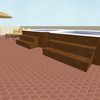10.1.2008 | 11:30
Bślgarķa: Global housing markets in review and some forecasts for 2008

ANNUAL HOUSE PRICE CHANGE (%), IN LOCAL CURRENCY TERMS | ||
| 2007* (LATEST) | END-2006 | |
| Bulgaria | 30.59 | -- |
| China (Shanghai) | 27.85 | -0.61 |
| Singapore | 27.59 | 10.15 |
| Estonia (Tallinn) | 23.38 | 28.64 |
| Lithuania | 13.64 | 30.95 |
| Philippines | 13.04 | 9.63 |
| Colombia | 12.82 | 6.77 |
| South Africa | 12.52 | 15.12 |
| Norway | 11.56 | 16.67 |
| Hong Kong | 11.25 | 4.11 |
| Australia | 10.63 | 9.71 |
| Latvia | 10.22 | 68.99 |
| Sweden | 9.86 | 10.50 |
| UK | 9.68 | 10.49 |
| South Korea | 9.01 | 11.60 |
| Poland | 8.38 | 9.67 |
| France (Paris) | 8.27 | 9.70 |
| Japan (6 cities) | 7.75 | 4.12 |
| New Zealand | 6.67 | 11.86 |
| Canada | 6.13 | 10.74 |
| Finland | 5.88 | 6.56 |
| Italy | 5.60 | 6.30 |
| Spain | 5.31 | 9.14 |
| Indonesia | 5.24 | 6.60 |
| Greece | 4.18 | 10.54 |
| Denmark | 3.95 | 14.94 |
| Netherlands | 3.77 | 4.73 |
| Malaysia | 3.20 | 4.80 |
| Switzerland | 2.56 | 3.24 |
| Germany | 2.04 | 3.06 |
| Portugal | 0.49 | 0.65 |
| Israel | -0.51 | -3.16 |
| Thailand | -0.78 | 1.87 |
| Japan | -1.48 | -2.78 |
| Ireland (monthly) | -4.68 | 11.8 |
| US (NAR) | -5.07 | -0.18 |
| US (FHFB) | -3.49 | -1.9 |
| US (OFHEO) | 1.79 | 6.03 |
| * latest available Source: various series, list of house prices, data and sources here | ||
In 2007, the US housing market crashed, and Europe’s housing markets slowed. But house prices in Asia-Pacific gained momentum.
Bulgaria saw the world’s strongest house price growth at 30.6% (15.4% in real terms) to end-Q3 2007 from a year earlier.
Shanghai’s red hot housing market continued to rebound, despite efforts by the government to cool the market. House prices rose by 27.85% to end-Oct 2007 from a year earlier; a significant turnaround from 0.6% drop in 2006.
Singapore registered an annual house price increase of 27.6% (24% in real terms) to end-Q3 2007, significantly higher than the 7.6% price increase over the same period in 2006. In real terms, Singapore was the world’s best-performing housing market, given inflation of only 2.66%.
House prices rose by more than 10% year on year (y-o-y) in nominal terms in several developing countries - the Philippines, Colombia, South Africa, and Hong Kong. However, when adjusted for inflation, price increases were generally substantially lower.
In Europe most countries registered unimpressive y-o-y house price changes in 2007, aside from Norway and Estonia.
Property prices in Ireland started falling in 2007, the first time in more than 15 years. The Irish housing market had the biggest and longest house price boom among developed countries in recent memory.
Urban land prices in Japan’s six largest cities rose by 7.75% during the first half of 2007. Although Japan’s national urban land price index fell by 1.48% during 1H 2007, this is an improvement from the 2.8% price fall in 2006. The Japanese urban land price index is generally believed to lag reality, so significant recovery is taking place in the Japanese housing market.
Interest rates
The recent house price slowdown in Europe and the US is mainly due to higher interest rates.
In Europe, the European Central Bank (ECB) raised its key interest eight times in 15 months. The repo rate was raised to its current level of 4% in June 2007 from its historic low of 2% in Nov 2006.
In the US, the Federal Reserve Bank raised its key lending rate 17 times in 24 months during 2004-2006. The US Federal Funds rate rose sharply from its historic low of 1% in May 2004 to 5.25% in June 2006.
As signs of strain on the housing market started to appear in mid-2006, the Fed kept its key rate at 5.25% for 14 months to Aug 2007.
When the US housing market boom turning to a bust, the Fed slashed key rates in September by 50 basis points and in October and December by 25 basis points, bringing the rate down to 4.25%.
The central banks of UK and Canada reduced key lending rates by 25 points in December 2007.
Some would say the Fed raised rates “too much, too soon,” and is now frantically reducing key rates to avoid recession. Others however suggest that weak oversight of US mortgage market lending is the primary cause of the present crisis, in combination with a structural shift toward off-balance sheet lending.
The ECB’s stubbornly slow rate adjustments, in contrast, have allowed the Eurozone’s diverse housing markets to adjust relatively smoothly. Only the most overpriced housing market, Ireland, has actually crashed, while the rest are mostly slowing








 kolgrimur
kolgrimur
 the-consultant
the-consultant
 prakkarinn
prakkarinn
 killjoker
killjoker
 halkatla
halkatla
 palmig
palmig
 saxi
saxi
 glauga
glauga
 vilhelmina
vilhelmina
 zeriaph
zeriaph
 arnaeinars
arnaeinars
 almaogfreyja
almaogfreyja
 gattin
gattin
 gudrunss
gudrunss
Bęta viš athugasemd [Innskrįning]
Ekki er lengur hęgt aš skrifa athugasemdir viš fęrsluna, žar sem tķmamörk į athugasemdir eru lišin.